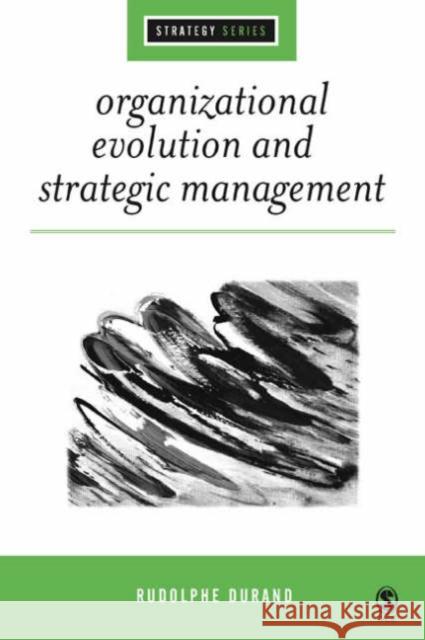Organizational Evolution and Strategic Management » książka
Organizational Evolution and Strategic Management
ISBN-13: 9781412908634 / Angielski / Miękka / 2006 / 200 str.
Organizational Evolution and Strategic Management
ISBN-13: 9781412908634 / Angielski / Miękka / 2006 / 200 str.
(netto: 273,52 VAT: 5%)
Najniższa cena z 30 dni: 256,90
ok. 22 dni roboczych.
Darmowa dostawa!
Rodolphe Durand has a compelling message for the growing community of evolutionary researchers in organization studies. Evolutionary researchers need to attend more carefully to historical and contemporary debates in the biological sciences if they are to avoid false tracks and simplisitic analogies. Durand offers here the foundations of a distinctive and authentic evolutionary theory that takes organizations seriously for what they are' - Richard Whittington, Oxford University This book fills an important gap in the study of organizations and strategy from an evolutionary perspective. It offers a synthetic approach to evolutionary analysis with grounded empirical examples that graduate students and seasoned scholars alike will find immensely useful. Durand's OES model, rooted in a critical examination of philosophical and scientific writings on evolution, is particularly promising and provides a valuable guidepost for future research on organizations and strategic management' - Michael Lounsbury, University of Alberta How is economic evolutionary theory, in which organisations evolve according to environmental selection, reconciled with evidence of strategic management? This book is the first of its kind to propose a solution to this theoretical puzzle and engage readers in a balanced understanding of organizational evolution. Rodolphe Durand embarks upon a fresh assessment of the literature. His discoveries provide the foundation for a new theory of organizational selection and an organizational evolution and strategy model that reconciles economic evolution with strategic intentionality. Chapters include an examination of the work by Lamarck, Darwin and Spencer; a constructive appraisal of evolutionary theory applied to organisations and a summary of how the organizational evolution and strategy model will affect future theory and research. - An associated web site with further information can be found at: http: //studies.hec.fr/web/durand











